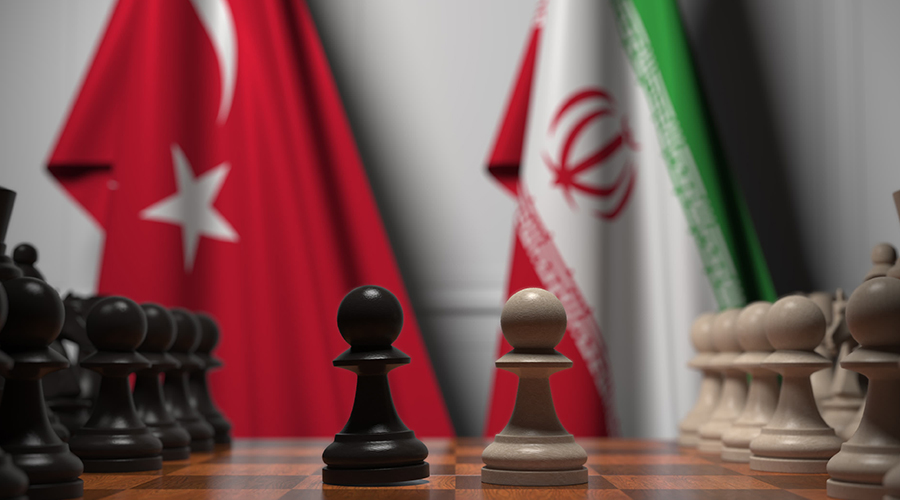Two decades after the 9/11 attacks, and in light of the shifts that the Middle East has undergone since that fateful day, it is important to reexamine this detrimental incident , especially in regards to the link between the attacks and the expansion of roles of regional powers.
A quick look into the modern history of the Middle East would reveal that the roles of regional powers such as Iran and Turkey were limited both in scale and effectiveness, and that their advances and policies were focused on matters directly related to their security and interests. But the 9/11 attacks, however, caused an escalation of non-Arab regional powers’ interventions in the region to a more dangerous and deeper level, which is an infiltration into the internal affairs of Arab states.
The Fall of Barriers
There has always been incessant interaction and overlap between the internal and foreign affairs of regional states. But the 9/11 attacks served as a direct cause of the complete fall of barriers between that is internal and what was foreign, as well as of attracting the attention of the world to the internal dynamics giving rise to the phenomenon of terrorism and the social, economic and political circumstances shaping the character and mindset of terrorists and extremists.
Despite ambiguity and a lack of sufficient information about the involved individuals and the states behind the attacks, Washington rushed to interfere in the internal affairs of the Arab region and worked on introducing radical changes. This eventually led to attempt to change situations, policies and characteristics of Arab societies that have their own specificities and compositions.
The 9/11 attacks left a deep footprint on relevant international efforts. Despite wide cooperation from Arab states in combating all forms of terrorism, the international views and trends continued to be troubled by convictions born out of the 9/11 bombings. The most important and dangerous of these is the association between terrorism and Islam, contrary to the notion that such terrorist acts are the result of behavior and actions of individuals, who happen to be Muslims. This allowed regional states such as Turkey, Iran and Israel to play relevant roles and carry out direct and indirect movements with the blessing of, and even in coordination with the United States and other global great powers. As a result, the roles and influence of these states were allowed to swell up in conflict hotspots in the Arab region, such as the war against ISIS in Syria and Iraq.
But again, despite the major roles that Arab states have played in this context, the goals of non-Arab regional powers went beyond the immediate borderline of combating terrorism. This led to utilization of contributions of these states towards the international campaign to combat terrorism, taking advantage of internal turmoil and deterioration in some of these states to serve their direct interests. Such is the case with Turkey’s military presence in Syria and Libya, Iran’s wide, far-reaching influence in Iraq and Syria and its military arms and proxies in Lebanon and Yemen. This regional geostrategic penetration of the heart of the Arab region poses serious dangers for both the individual and collective pan-Arab national security.
Decline in Joint Arab Action
Despite all the criticism of the concept of joint Arab action, one of the consequences of the 9/11 attacks was the overthrow of the concept itself and the near extermination of any intellectual or practical movement that prioritizes the pan-Arab regional idea, represented by the Arab League as a common denominator and a convergence point for Arab states. The result was that non-Arab regional states found an opportunity to penetrate and encroach on the Arab sovereignty and establish ties and interest-driven relations with Arab states that are supposed to be more than strategic allies. The best example on this is the ability of Iran and Turkey to create a powerful network of relations based on bilateral and sometimes multilateral interests, in which Tehran and Ankara play the role not just as the sponsor but also as the main players in the political game.
The situation became even more dangerous and complicated due to a decline in the endogenous capacities of Arab states such as Lebanon and Iraq, as well as exacerbating internal and external pressure on their successive governments. This has led to shifting the circle of regional influence, that of Iran and Turkey in particular, from the direct official sphere, or inter-governmental relations, to the sphere of direct relations with parties and organizations operating within the Arab states, such as Lebanon’s Hezbollah, the Palestinian group Hamas and Iraq’s militant groups.
These interferences heightened to their current level also because of subsequent developments and dynamics that followed the 9/11 attacks, such as the occupation of Iraq in 2003 and the uprisings in some regional states in 2011. The major cause, however, of the existence and expansion of these regional players’ infiltration were the 9/11 attacks and their repercussions not just on a global sphere but on the Arab region in particular.


